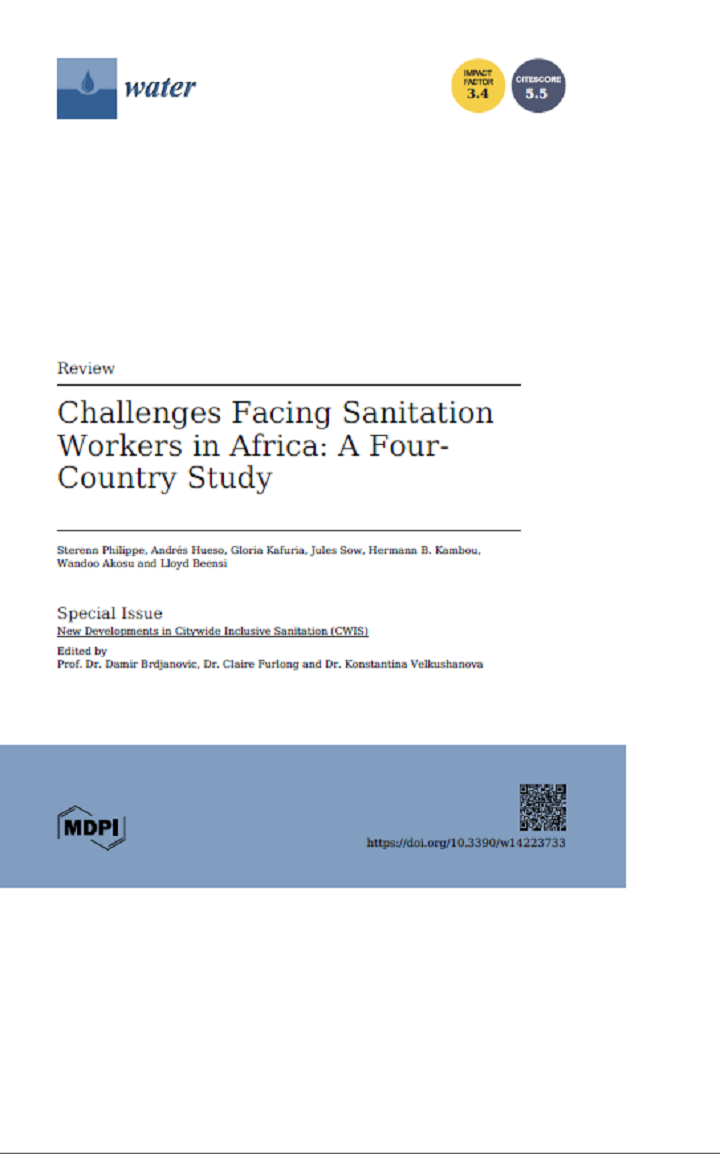Challenges Facing Sanitation Workers in Africa: A Four-Country Study Sterenn Philippe, Andrés Hueso, Gloria Kafuria, Jules Sow, Hermann B. Kambou, Wandoo Akosu and Lloyd Beensi (2022)
Sanitation workers encounter significant challenges that jeopardize their dignity and health, crucial for achieving Sustainable Development Goals (SDGs). Despite their vital role, many governments in low- and middle-income countries neglect support for this workforce due to insufficient understanding of their needs and obstacles.
The paper explores challenges faced by sanitation workers in Africa, including health risks, inadequate pay, legal vulnerability, and social stigma. Assessments conducted in Burkina Faso, Nigeria, Tanzania, and Zambia reveal widespread issues such as insufficient protective gear and healthcare access. Manual emptiers and informal workers are particularly vulnerable. The study calls for tailored government action plans, informed by national assessments and collaboration with worker groups, to improve conditions and support workers' well-being and dignity in line with SDGs.
Bibliographic information
Sterenn Philippe, Andrés Hueso, Gloria Kafuria, Jules Sow, Hermann B. Kambou, Wandoo Akosu and Lloyd Beensi (2022). Challenges Facing Sanitation Workers in Africa: A Four-Country Study MDPI
Filter / Tags
Public awareness, advocacy and civil society engagement (WG9)Operation, maintenance and sustainable services (WG10)EducatorsPoliticians and local decision makersPractitionersResearch publicationsEnglishImport to Sanitation Workers PlatformLegal and regulatory frameworksHealth & SafetySocial securityFinancial security, alternative livelihoodsDignityLegal and regulatory frameworksHealth & SafetySocial securityFinancial security, alternative livelihoodsDignity
Related Countries
Burkina FasoNigeriaTanzania United Republic ofZambia
Downloads
Challenges Facing Sanitation Workers in Africa: A Four-Country Study
Type: application/pdf
Size: 0.39 MB

